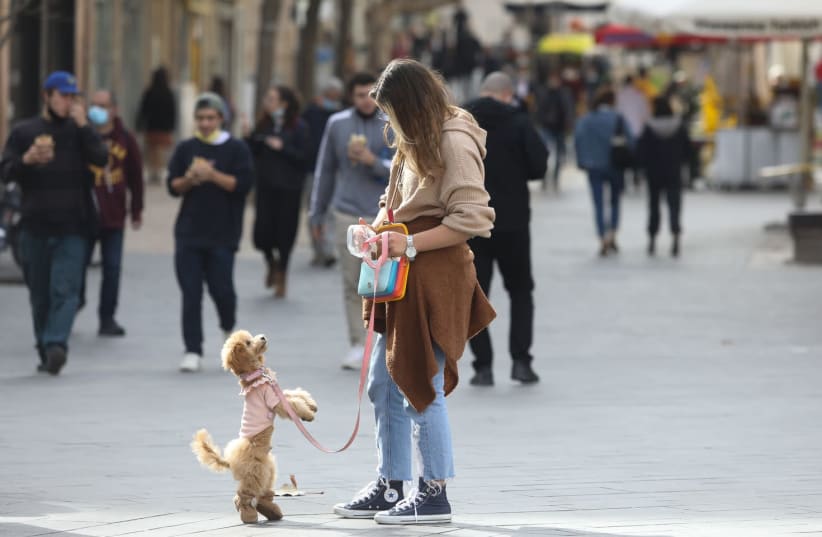Children between the ages of 12 and 16 could be able to be vaccinated as early as May, Health Ministry Director-General Chezy Levy said over the weekend.
In an interview with N12, he said “as soon as there is FDA approval, we will prepare and import the vaccines.”
Last week, Pfizer and BioNTech announced that its vaccine was safe and effective against the virus for children in this age cohort. It is now seeking FDA approval.
The companies also announced that their vaccine is now considered 91.3% effective against COVID-19 and that its efficacy is maintained for at least six months. The vaccine was 100% effective against severe disease.
Upwards of 5.2 million Israelis have received at least one dose of the Pfizer vaccine, among them 4.8 million who have already had both shots. That amounts to nearly 52% of Israelis who are fully vaccinated against the virus. In addition, there are more than 821,000 people who had the virus and recovered.
However, the vaccination campaign in the country has greatly slowed, leaving upwards of a million Israelis still eligible to get the jab. This number includes some 238,000 people over the age of 50, who are at higher risk for developing a severe case of COVID-19.
Only around 36,000 Israelis received their first shot this past week, according to the Health Ministry.
“There are 2.5 million children and about a million adults who have not yet been vaccinated. It could cause infection,” Levy said during his interview.
He was answering a question about whether the country could see more relief in the coming weeks as the infection rate continues to decline.
This could include, for example, not having to wear masks in open spaces, something which all health officials agree has no epidemiological value but serves more as a deterrent to help ensure people wear masks indoors and in crowded spaces, where masks are still needed.
“Opinions in the ministry are divided,” Levy told N12. “There is still a fear of infection, but I also see that the public and the majority of people are already vaccinated. We are debating with each other and with experts, and I hope we will reach the right decision.”
PASSOVER ENDED Saturday at sundown; on Monday, children are meant to return to school. Third graders will no longer be learning in capsules, but older children are still required to do so, which means they cannot be in school full time and still require some Zoom lessons.
Fourth graders will go to school five days a week in capsules; students in grades five through 12 will be in their classrooms only two days a week. This is despite the fact that only around 4,000 students out of more than 2.4 million have coronavirus and that more than 80% of all educational staff is vaccinated.
Levy said that “we are afraid to put older children who are not vaccinated in a class with 30 to 40 students,” but added that the ministry is specifically examining whether students in grades 11 and 12 could learn together since around 60% to 70% of them are either vaccinated or have already been infected with corona and recovered.
Like with the masks, he told N12 that “things are in dialogue and we will loosen restrictions as much as we can.”
The reproduction (R) rate dropped Friday morning to 0.61, after being on the rise the past couple of days.
The reproduction rate is the number of people each sick person infects. Health officials say it must be less than one to ensure that the virus does not spread. On Thursday morning, the Health Ministry reported the rate at 0.64, the highest it had been in two weeks.
There were 416 people diagnosed with coronavirus on Friday out of around 33,000 who were tested; 1.3% of people who were screened tested positive.
There were only 6,086 active cases in the country, including 351 people who were in serious condition; among them 177 who were intubated.
Some 6,236 Israelis have died from coronavirus since the start of the pandemic. Sixteen people died over the weekend. The Health Ministry reported that 454 people died of COVID-19 in March. In comparison, over 1,400 people died of the virus in January – accounting for around 30% of all coronavirus deaths at the time.
There are still no red cities. Only three cities are labeled orange – all of them Arab-Bedouin towns. All the rest are yellow or green.
The city with the highest number of active patients remains Jerusalem, with just over 1,000 sick people.
